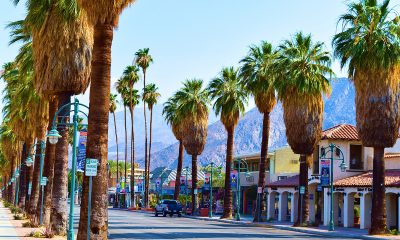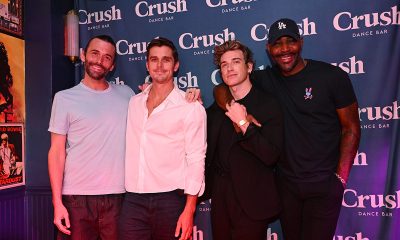Arts & Entertainment
Jasmine Guy’s world today
Actress in town this weekend with Harlem Renaissance tribute show
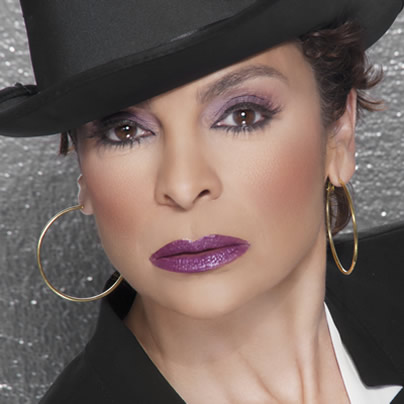
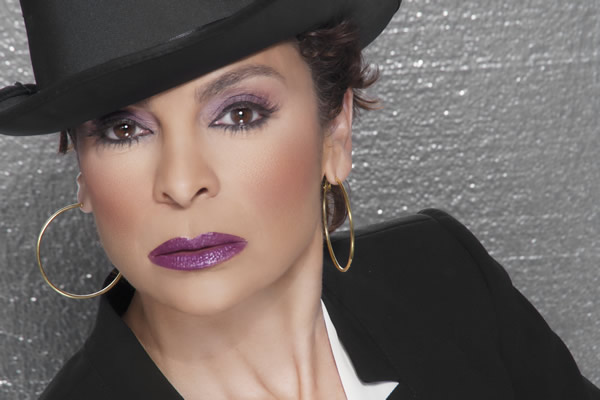
Actress Jasmine Guy says her passion for black culture in the early 20th century has kept her doing ‘Raisin’ Cane’ for five years. (Photo by Calvin Evans)
‘Raisin’ Cane: A Harlem Renaissance Odyssey’
Starring Jasmine Guy and the Avery Sharpe Trio
Saturday, 8 p.m.
Publick Playhouse
5445 Landover Rd.
Cheverly, MD
$55 VIP (includes pre-show reception)
$40 general
301-277-1710
Actress/singer Jasmine Guy will be in the D.C. area this weekend for a one-night-only performance of “Raisin’ Cane: a Harlem Renaissance Odyssey.”
We caught up with her by phone from her home in Atlanta where she answered questions about the show, gay rights, her work on the hit ’87-‘93 sitcom “A Different World” (she played spoiled Whitley for the show’s entire six-season run) and more. Her comments have been slightly edited for length.
WASHINGTON BLADE: Tell us about “Raisin’ Cane.”
JASMINE GUY: I’ve been doing the show over the past five years in various places all over the country. It grows and changes and morphs every time we do it. I do it with three other musicians — a jazz violinist, a percussionist and our composer, Avery Sharpe and we cover the decade between 1919 and 1929 of the Harlem Renaissance, right after World War I but just before the Great Depression when there was a lot of money flowing into Harlem and a lot of artists were flourishing. Painters, poets, writers, philosophers, so it was a pretty rich time in our American history. A lot of what has come down to us as Americans has come from that period as far as ways of thinking and ways of articulating our needs.
BLADE: Are you playing a specific character?
GUY: I’m like a teacher taking you through this journey. Along the way, whatever lesson needs to be taught, that’s what I do. I either reenact a scene or become another character or I dance or sing or tell a story or recite a poem — there’s a lot of all of that involved in the show.
BLADE: How did you come to the work?
GUY: Avery Sharpe and I have been friends for over 30 years and when he brought the piece to me, it started as a reading and an experimental piece to see where the interest was with people and over the last five years, it’s just continued to grow and grow. I stayed involved because of my passion for that decade and what was happening politically and historically in that time as well as artistically. It was such a fun and exciting time where jazz was birthed and we had poets like Langston Hughes and Zora Neale Hurston and painters like Aaron Douglas and philosophers like W.E.B. DuBois and Booker T. Washington and Marcus Garvey who were claiming freedom in their own way.
BLADE: African-American themes are recurring in your body of work. To what degree have you sought them out versus had them come to you?
GUY: Sometimes they intertwine. There are the roles that we pick and the roles we kind of cross paths with and we don’t really know why. There have been certain projects where I feel like I’m part of telling the truth, whether it’s “A Different World” or “Queen” (“The Story of an American Family”), or “Stompin’ at the Savoy” or “Dead Like Me,” there seems to be a certain truth to the quality of the work we’re doing at the time and I think that truth is what draws me in. I love that we tell stories that haven’t been told yet and that I’m able sometimes to get an audience to think as well as to laugh. I’m not sure which is more important, but I like that I can do both.
BLADE: Some have said gay activists who draw parallels to the Civil Rights movement are overreaching. Is that a valid line of reasoning in your opinion?
GUY: I have had friends over the years who have resented the comparison. … I think what we really all want is to be treated equally and have the right to make our own choices in our lives and in that respect, both gay rights and African-American rights have been stifled in this country and we’ve had to fight for those rights. We are still fighting in certain ways for those rights. … For some … the fight has shifted. I mean, we’re able to vote legally, we’re able to integrate, but there are still very specific things that are disproportionate in this country. There’s a huge class difference and whether you’re black or gay, there are still things we need to speak up for because in principle, it’s all the same principle. We are really all fighting for the same thing.
BLADE: With all your work in the entertainment industry, you must have worked with a lot of gays over the years. True?
GUY: Oh absolutely. I mean, you know, my world is full of gay people. I’ve been so entrenched in the gay community that it has never been a second thought to me. We are all family and because of that, I’m even more sensitive to what my gay friends go through. I’m 51, so I lived through AIDS and although I was very young when AIDS came to be, that’s when I first realized how segregated the gay community was for the rest of the world. Sometimes you forget that the world is not accepting and it takes something bad like the AIDS epidemic for you to realize. That’s when I started to realize my gay friends were heroes in their own right for having the courage to live the lives they know they want and the need and fight for the right to do that. And I don’t use that word fighting lightly, you know. I have friends who have fought all their lives, physically and emotionally. Some who have not had the support of their families. I don’t think people really understood what it means to be gay until very recently, in the last decade or so, whereas for me, it was just always a part of what I knew and understood.
BLADE: You’ve done so much work on stage, film and TV over many years and stage work, of course, by its nature is very ephemeral and fleeting. You can be on a hit show like “A Different World” that was seen by 20 million people each week, yet in some ways, it’s a small part of your overall body of work. Has that ever been a source of frustration for you?
GUY: That was frustrating for me at the beginning. I started as a dancer with the Alvin Ailey Company and yeah, I felt that, you know, my best work is probably the work that most people haven’t seen. I did have to come to terms with that because I mean, just the sheer degree of difficulty of being a dancer and being a gypsy as I was for eight years before I got “A Different World,” compared to the relative ease of being on a hit TV show, I used to think, “OK, I’ve got to make sure everybody knows that these other things are so much more worthy.” I felt it was my personal cause to let people know that, yes, I’ve worked with Judith Jamison and I know Debbie Allen and worked with Courtney Vance in “Six Degrees of Separation” and so and so. … I’ve really been surrounded by greatness and amazing talent and I’ve been in the wings of so many performances where I saw that happen before my eyes and that’s not something we’ve always been so great at being able to recreate on television. … But things are so different now and we have access to everything in a way we did not have before. That was a real turning point for me to realize that. We can say things now we could never say before on a major, major scale and we can create our own audience. It’s always interesting to me when people come up to me, what they come up to me for. I guess I’ve had enough people say, “Oh, I saw you in ‘Chicago,’” or “I remember you years ago on the Academy Awards — I didn’t know you could dance.” They might have seen that thing I thought nobody was watching. Of course, that’s nothing compared to the 20 or 30 million people that watched “A Different World” every week, but I am also proud and happy to have been part of that, too. But these other little sidebars, enough people have commented that I’ve been able to say, “OK, there’s somebody out there who’s seeing the other stuff too.”
BLADE: That said, do you have a favorite episode of “A Different World”?
GUY: My memory of certain episodes is kind of from the inside out. Like I remember doing things more than the effect it may have had on other people. I wrote a couple, so of course I remember those and, hmmm, let me see. Oh my God — we had so many great shows. I tended to like the shows where we had guest stars.
BLADE: Like Gladys Knight — I remember her appearance so vividly.
GUY: Yes, that was huge. I was so excited to get to be a Pip and sing with her and meet her. On the set at one time we had both “Superfly” and “Shaft” because Ron O’Neal played my dad and Richard Roundtree played Charnele’s (Brown, who played Kim) dad. We had Diahann Carroll, Patti LaBelle, Jesse Jackson. We had the cast of “Sarafina!” on when we did a show about apartheid. Those were the most memorable moments for me. These people would come through and we would just sweep ‘em up because by that time we had a rhythm. We just kind of knew we could be funny no matter what we talked about and that was a good place to be for the show.
BLADE: So many iconic sitcom characters don’t work as lead characters. Garry Marshall said they knew better than to try to have Fonzie carry his own show. Other times they tried and it didn’t work — like Flo from “Alice.” I know “A Different World” was still an ensemble cast at heart, yet it seemed like the show really jelled in the second season after Lisa Bonet left and your character Whitley was much more in the lead spot. Why do you think it worked so well when traditionally that type of thing hasn’t worked?
GUY: Well, we certainly weren’t sure it was going to work. That first season, I always felt we weren’t gonna make it. I had never been on a show before but it just seemed kind of dysfunctional and I didn’t feel we were putting out our best product. I was kind of thinking, “OK, that isn’t gonna work, but at least I paid off my American Express.” Then as the show grew and we were picked up year after year and with the legacy of “The Cosby Show” behind us, I started to realize we were part of a wave, a real era of change on American television. I didn’t understand at the time we were at the end of that wave. I didn’t think it would just snap back and never be seen on TV again, you know with the number of female writers and the diversity we had on our show. …. I just thought there would be a whole lot more “Different Worlds” after our show and there really weren’t. … At the time, I think I was able to make that transition because I just did what was given to me to do. I just did what was in front of me. I never thought at the time, “Oh, if Lisa leaves the show, we can still continue if Dwayne and Whitley get together” — there wasn’t any of that. That was all Bill Cosby, Debbie Allen, NBC, the writers — you know this whole team of people that revamped that show and by the second season they had totally revamped it in a way that had more of a realistic HBCU (historically black colleges and universities) feel and they just capitalized on the actors that were already with the show. They brought in Cree Summer and Charnele Brown, but there was an absolute choice made to keep that show going based on what had and hadn’t worked that first season.
BLADE: That opening credit sequence from the second season on was really incredible the way it looks like it was shot in one continuous take with the camera moving from room to room left to right. It couldn’t really have been one take, though, right?
GUY: Oh no, it took like all day long. It was green screened and there were double images — like two of me in the same shot. It was before a lot of computer graphics and things we’re able to do now so yeah. That was the brainchild of Debbie Allen and it was an all-day-long thing — like 12 or 14 hours to do that.
BLADE: Thanks for your time and good luck in the show.
GUY: Thank you.
Theater
José Zayas brings ‘The House of Bernarda Alba’ to GALA Hispanic Theatre
Gay Spanish playwright Federico García Lorca wrote masterpiece before 1936 execution

‘The House of Bernarda Alba’
Through March 1
GALA Hispanic Theatre
3333 14th St., N.W.
$27-$52
Galatheatre.org
In Federico García Lorca’s “The House of Bernarda Alba,” now at GALA Hispanic Theatre in Columbia Heights, an impossibly oppressive domestic situation serves, in short, as an allegory for the repressive, patriarchal, and fascist atmosphere of 1930s Spain
The gay playwright completed his final and arguably best work in 1936, just months before he was executed by a right-wing firing squad. “Bernarda Alba” is set in the same year, sometime during a hot summer in rural Andalusia, the heart of “España profunda” (the deep Spain), where traditions are deeply rooted and mores seldom challenged.
At Bernarda’s house, the atmosphere, already stifling, is about to get worse.
On the day of her second husband’s funeral, Bernarda Alba (superbly played by Luz Nicolás), a sixtyish woman accustomed to calling the shots, gathers her five unmarried daughters (ages ranging from 20 to 39) and matter-of-factly explain what’s to happen next.
She says, “Through the eight years of mourning not a breeze shall enter this house. Consider the doors and windows as sealed with bricks. That’s how it was in my father’s house and my grandfather’s. Meanwhile, you can embroider your trousseaux.”
It’s not an altogether sunny plan. While Angustias (María del Mar Rodríguez), Bernarda’s daughter from her first marriage and heiress to a fortune, is betrothed to a much younger catch, Pepe el Romano, who never appears on stage, the remaining four stand little chance of finding suitable matches. Not only are they dowry-less, but no men, eligible or otherwise, are admitted into their mother’s house.
Lorca is a literary hero known for his mastery of both lyrical poetry and visceral drama; still, “Bernarda Alba’s” plotline might suit a telenovela. Despotic mother heads a house of adult daughters. Said daughters are churning with passions and jealousies. When sneaky Martirio (Giselle Gonzáles) steals the photo of Angustias’s fiancé all heck kicks off. Lots of infighting and high drama ensue. There’s even a batty grandmother (Alicia Kaplan) in the wings for bleak comic relief.
At GALA, the modern classic is lovingly staged by José Zayas. The New York-based out director has assembled a committed cast and creative team who’ve manifested an extraordinarily timely 90-minute production performed in Spanish with English subtitles easily ready seen on multiple screens.
In Lorca’s stage directions, he describes the set as an inner room in Bernarda’s house; it’s bright white with thick walls. At GALA, scenic designer Grisele Gonzáles continues the one-color theme with bright red walls and floor and closed doors. There are no props.
In the airless room, women sit on straight back chairs sewing. They think of men, still. Two are fixated on their oldest siter’s hunky betrothed. Only Magdelena (Anna Malavé), the one sister who truly mourns their dead father, has given up on marriage entirely.
The severity of the place is alleviated by men’s distant voices, Koki Lortkipanidze’s original music, movement (stir crazy sisters scratching walls), and even a precisely executed beatdown choreographed by Lorraine Ressegger-Slone.
In a short yet telling scene, Bernarda’s youngest daughter Adela (María Coral) proves she will serve as the rebellion to Bernarda’s dictatorship. Reluctant to mourn, Adela admires her reflection. She has traded her black togs for a seafoam green party dress. It’s a dreamily lit moment (compliments of lighting designer Hailey Laroe.)
But there’s no mistaking who’s in charge. Dressed in unflattering widow weeds, her face locked in a disapproving sneer, Bernarda rules with an iron fist; and despite ramrod posture, she uses a cane (though mostly as a weapon during one of her frequent rages.)
Bernarda’s countenance softens only when sharing a bit of gossip with Poncia, her longtime servant convincingly played by Evelyn Rosario Vega.
Nicolás has appeared in “Bernarda Alba” before, first as daughter Martirio in Madrid, and recently as the mother in an English language production at Carnegie Melon University in Pittsburgh. And now in D.C. where her Bernarda is dictatorial, prone to violence, and scarily pro-patriarchy.
Words and phrases echo throughout Lorca’s play, all likely to signal a tightening oppression: “mourning,” “my house,” “honor,” and finally “silence.”
As a queer artist sympathetic to left wing causes, Lorca knew of what he wrote. He understood the provinces, the dangers of tyranny, and the dimming of democracy. Early in Spain’s Civil War, Lorca was dragged to the the woods and murdered by Franco’s thugs. Presumably buried in a mass grave, his remains have never been found.
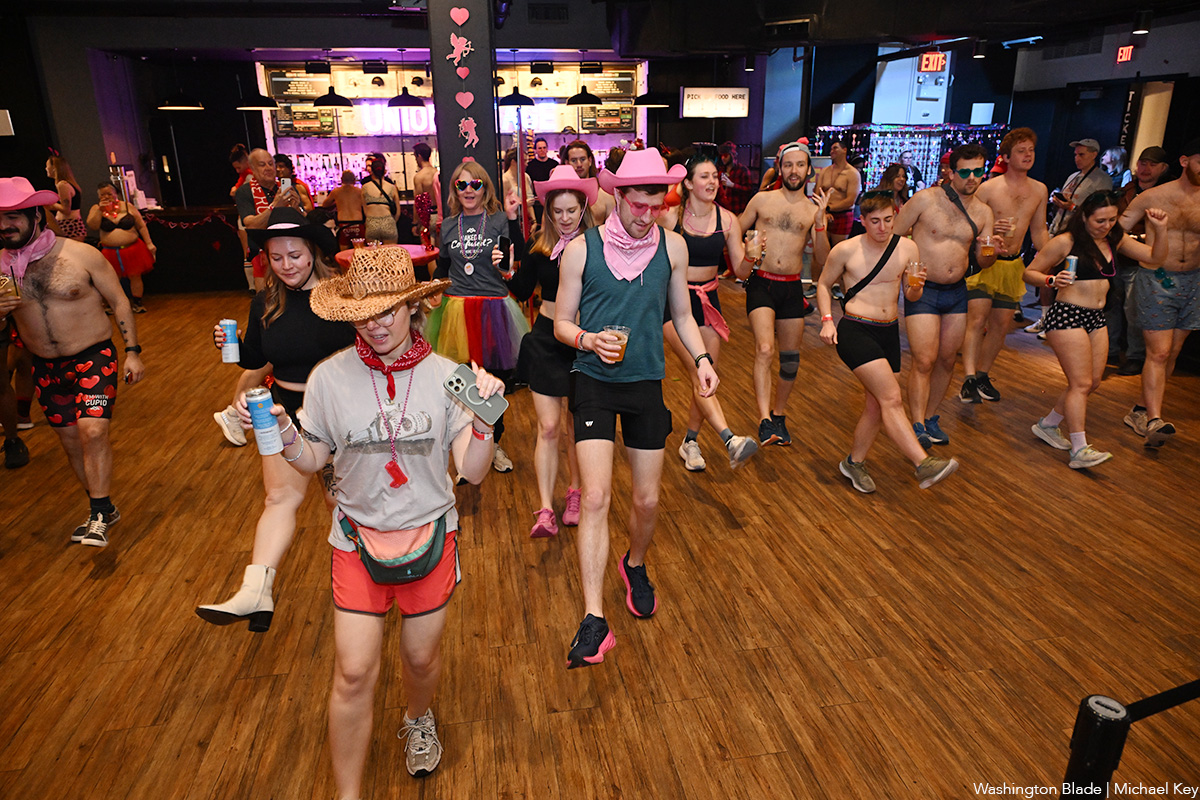
Cupid’s Undie Run, an annual fundraiser for neurofibromatosis (NF) research, was held at Union Stage and at The Wharf DC on Saturday, Feb. 21.
(Washington Blade photos by Michael Key)
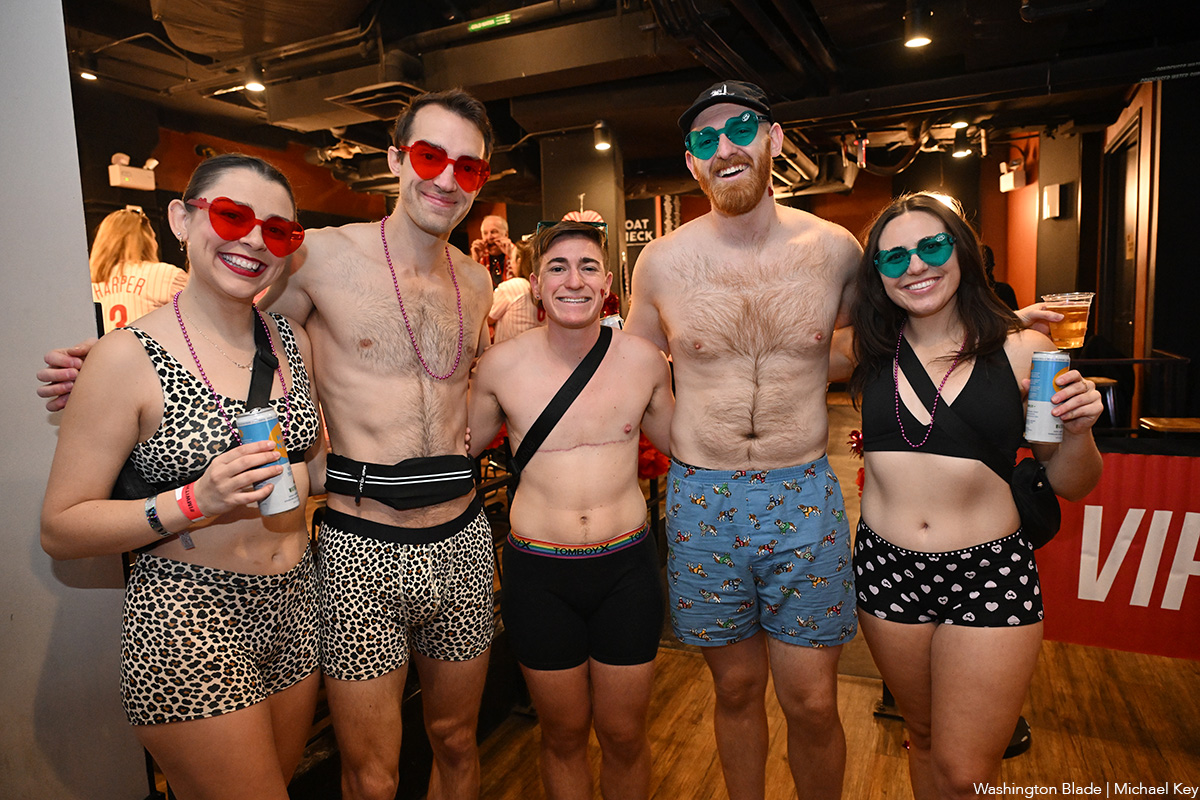
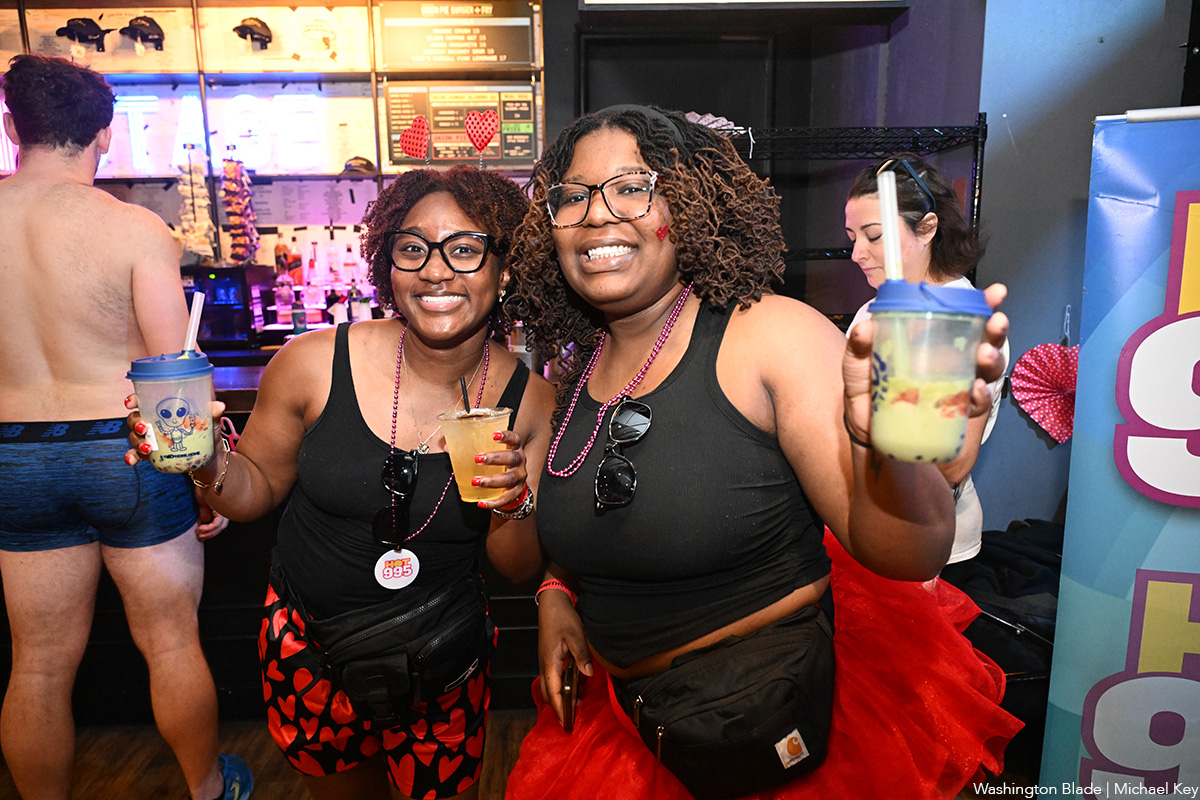
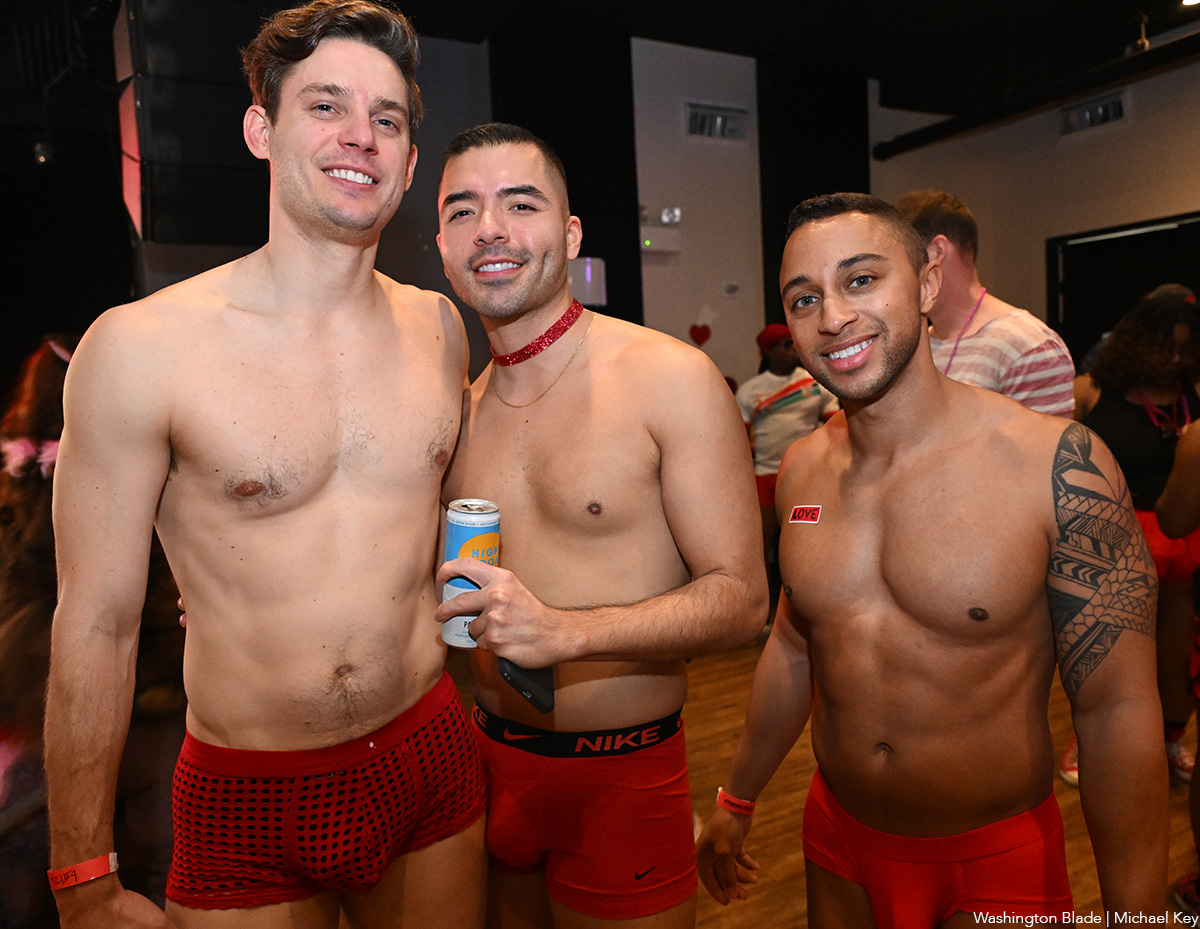
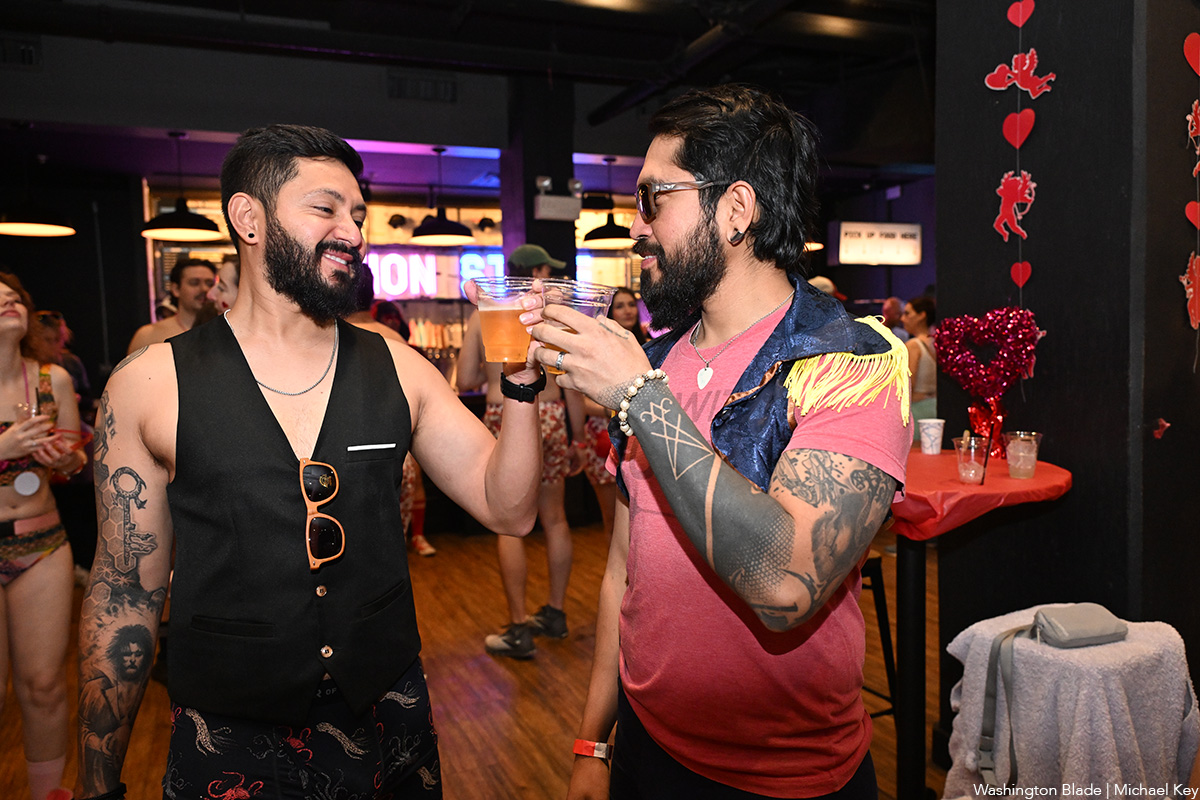
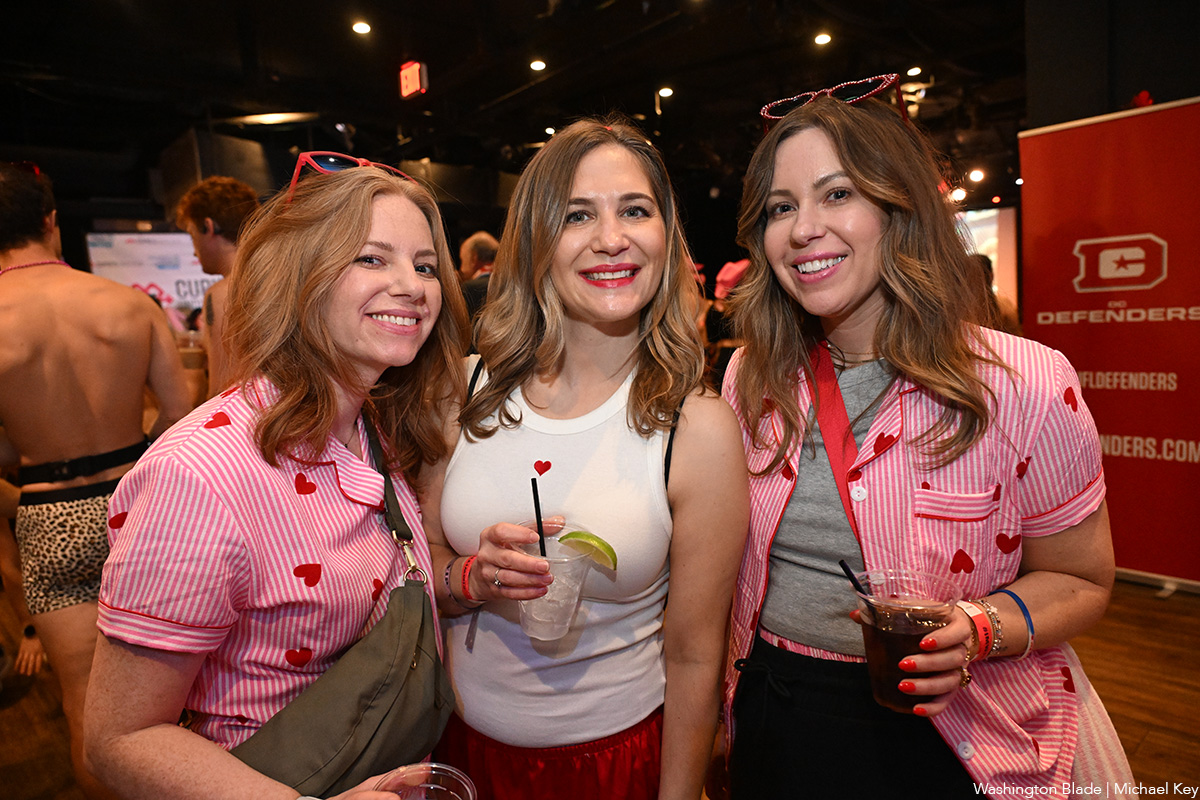
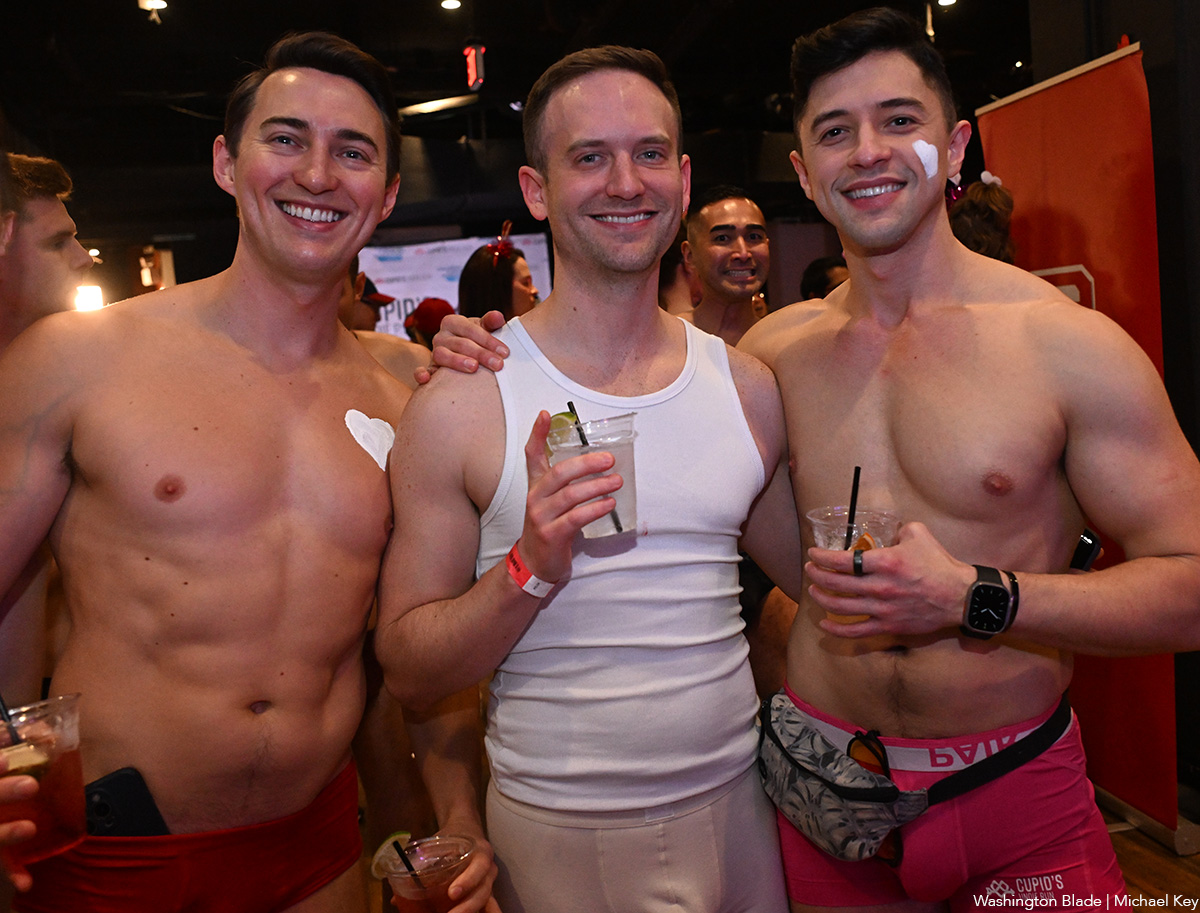
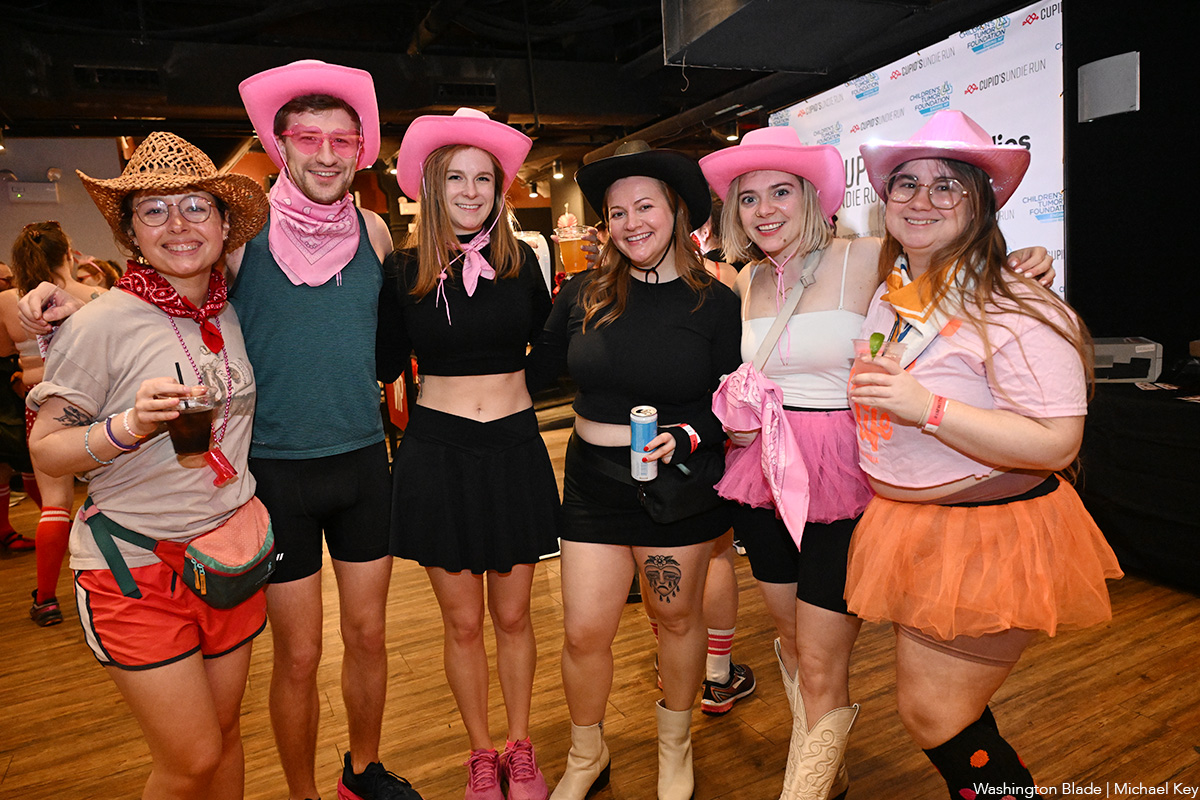
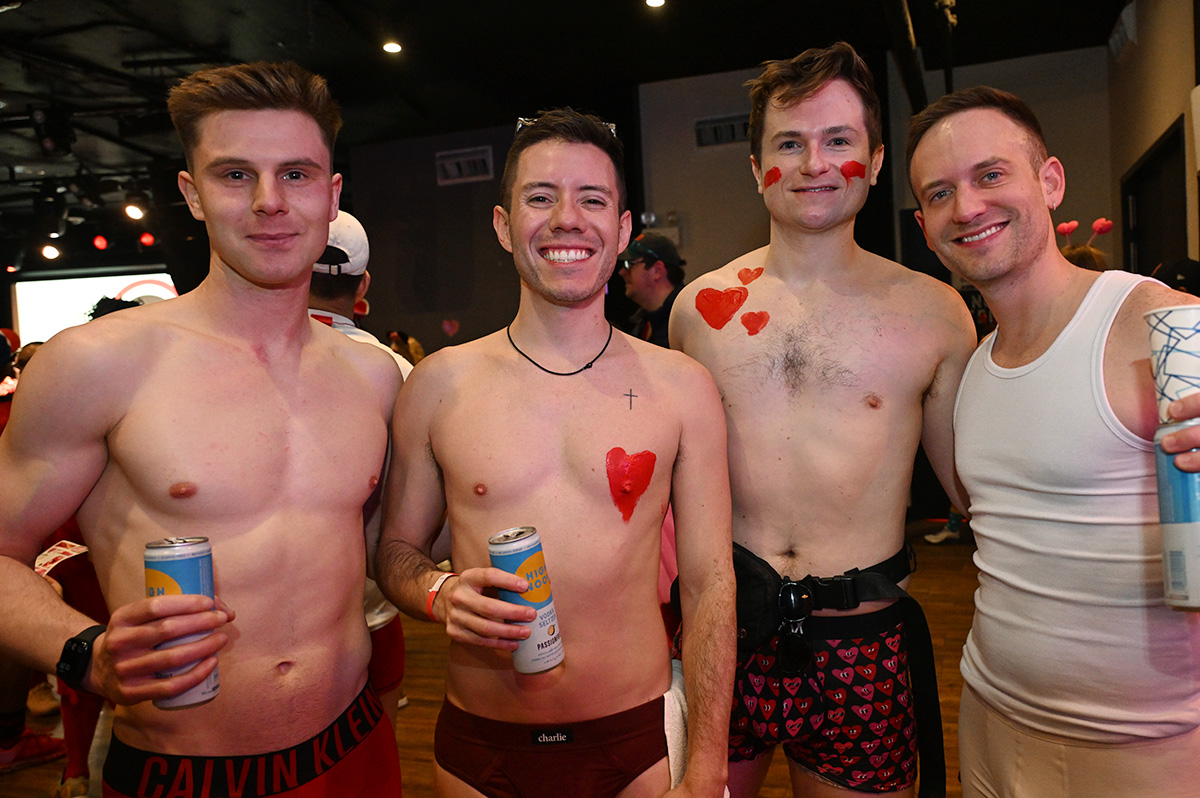
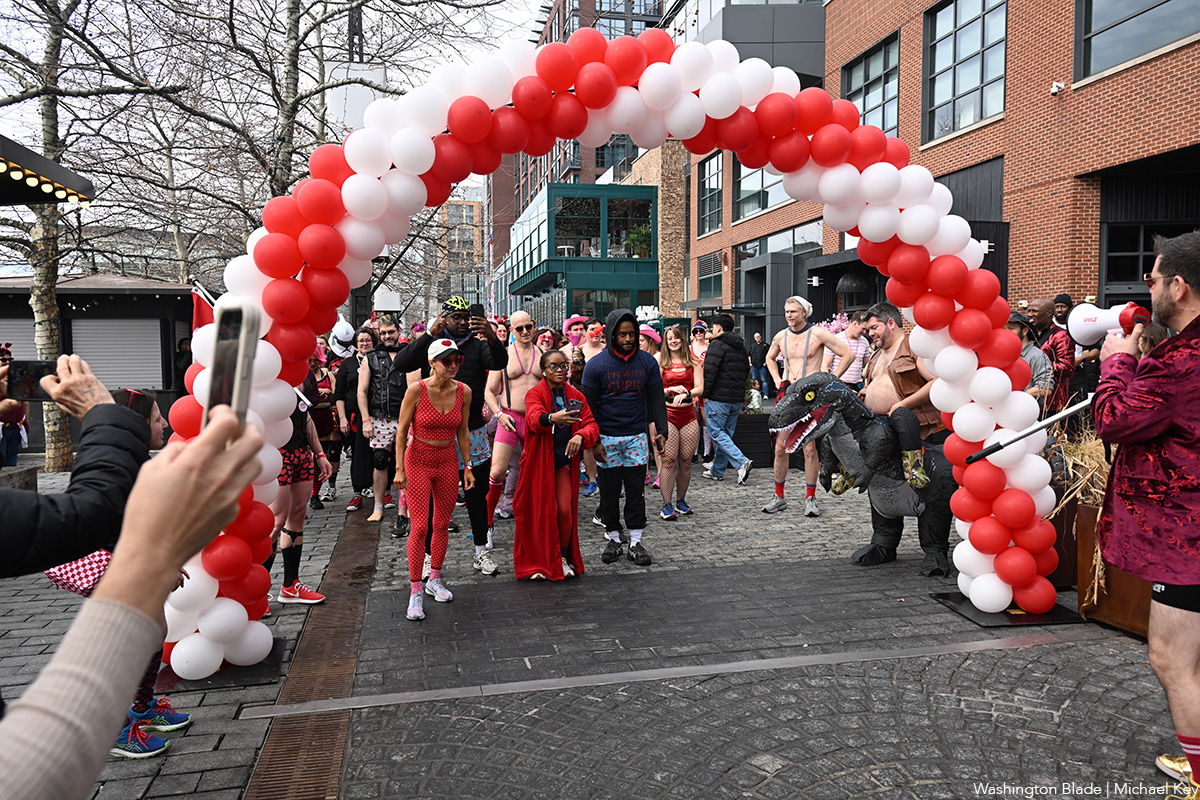
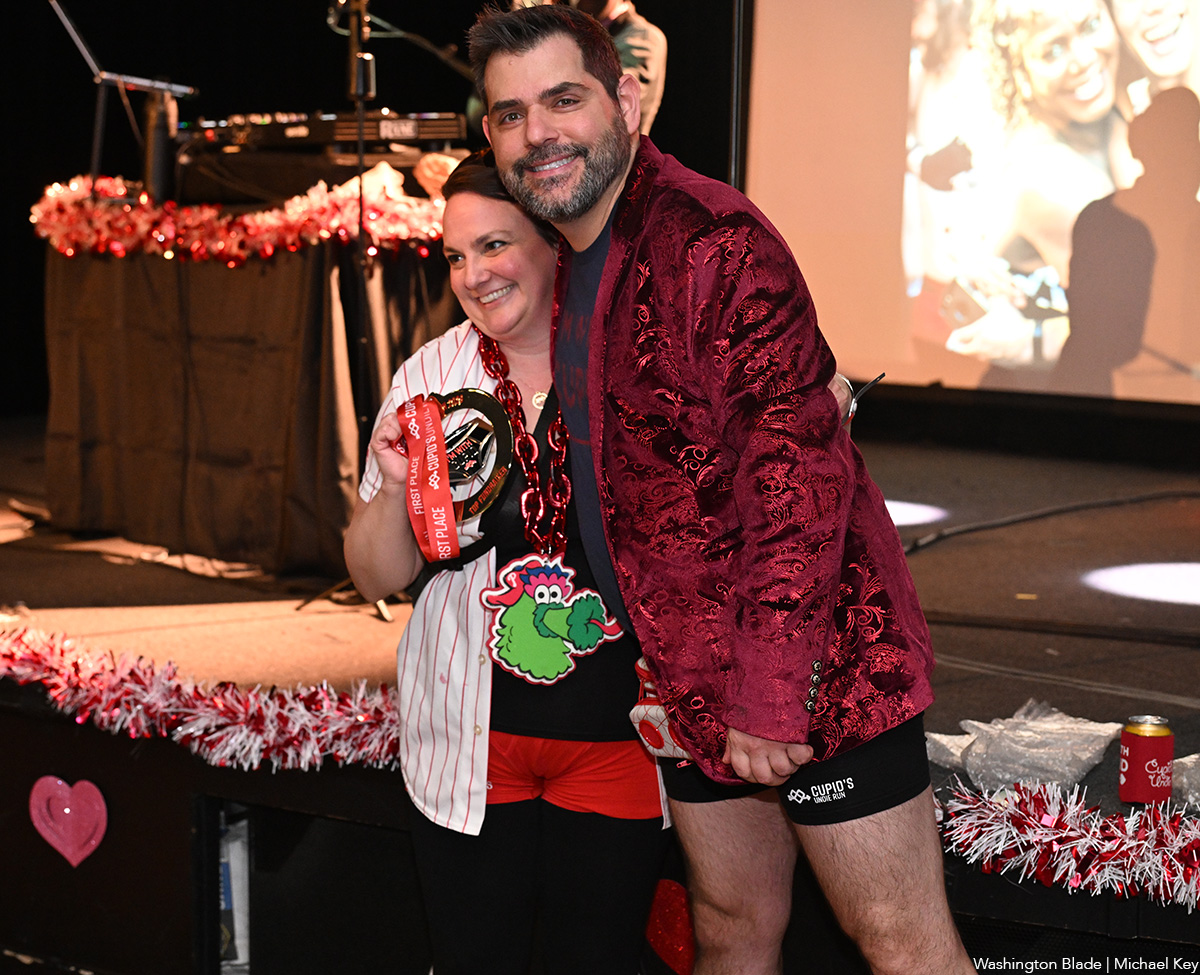
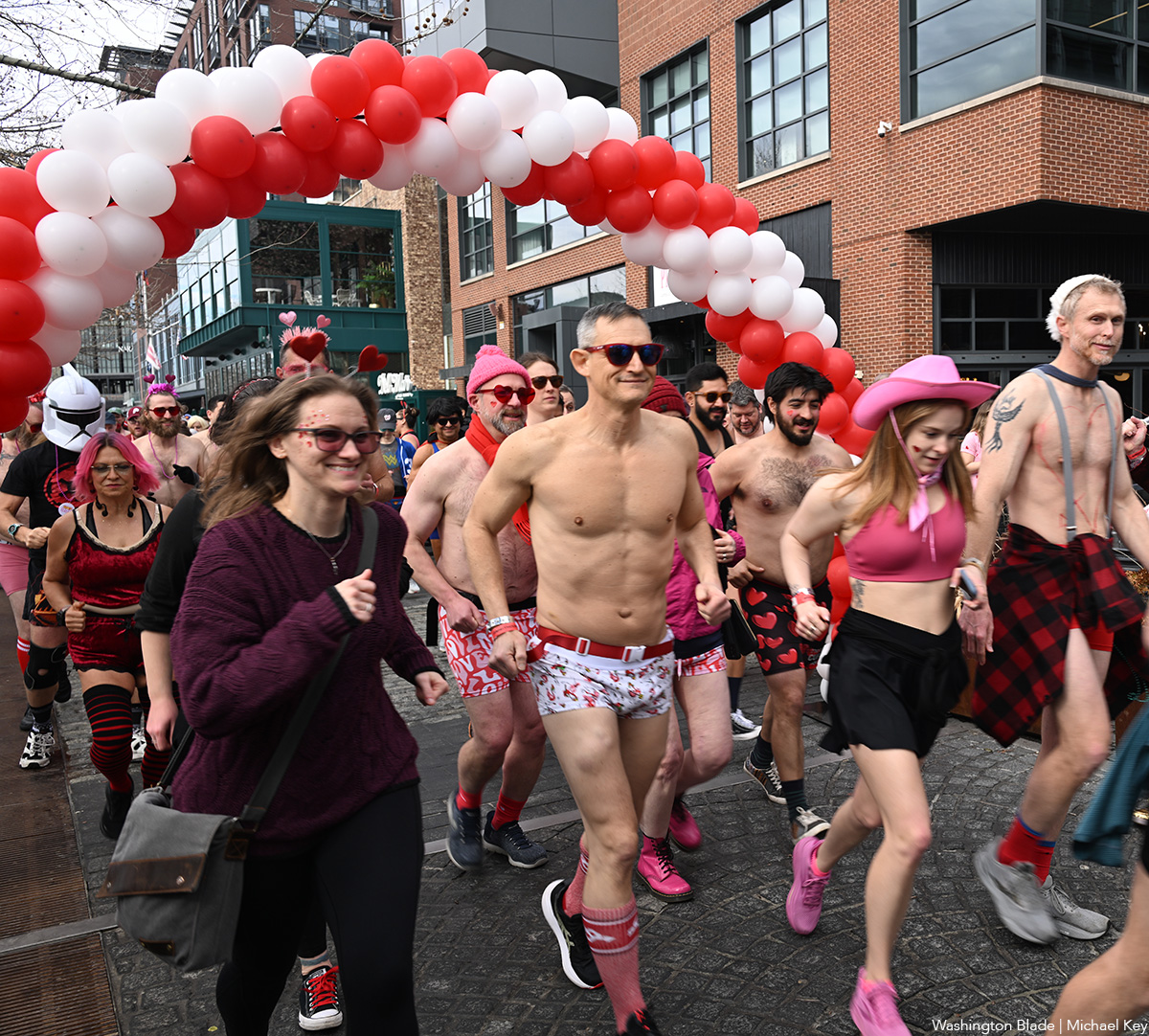
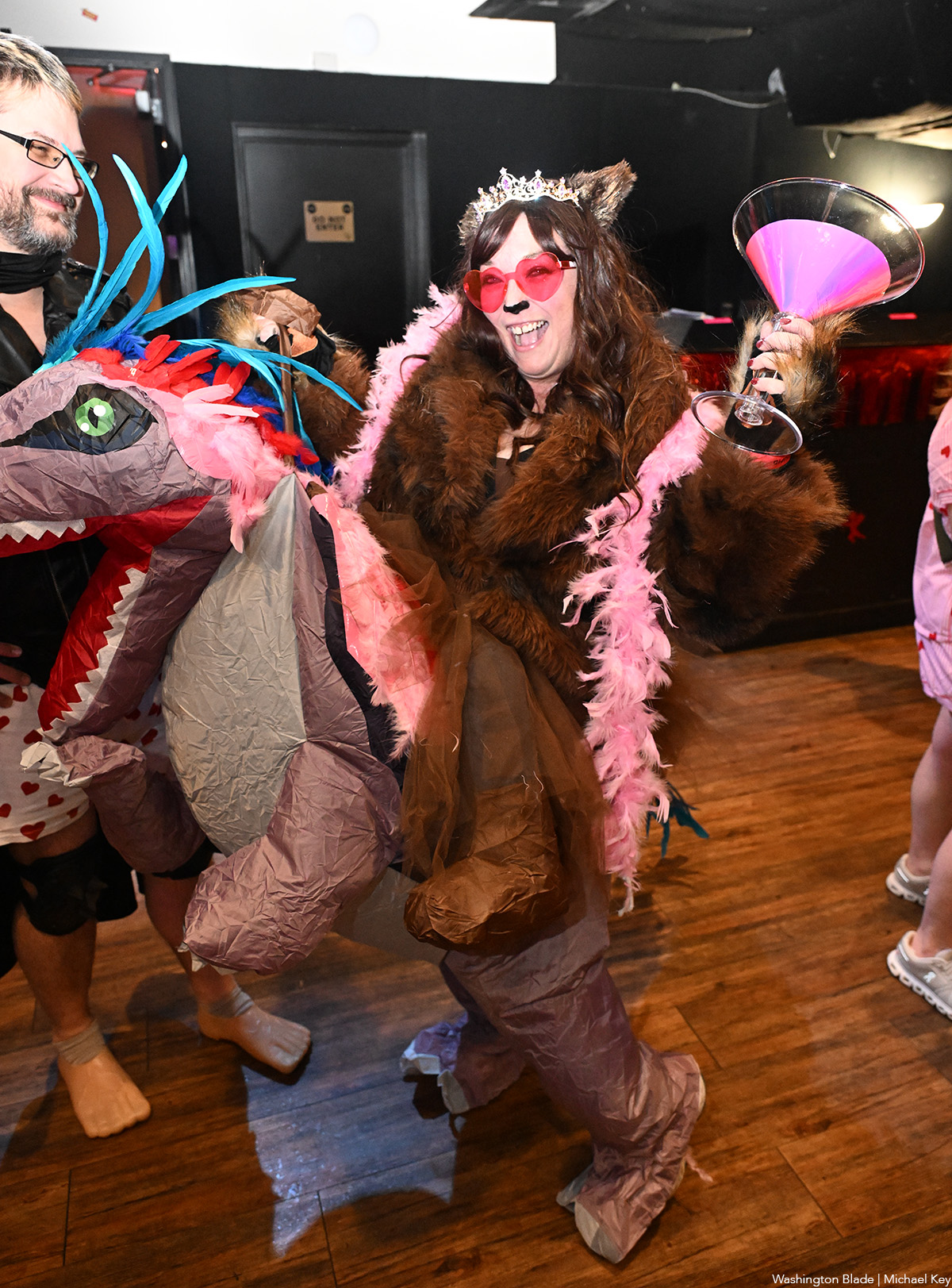
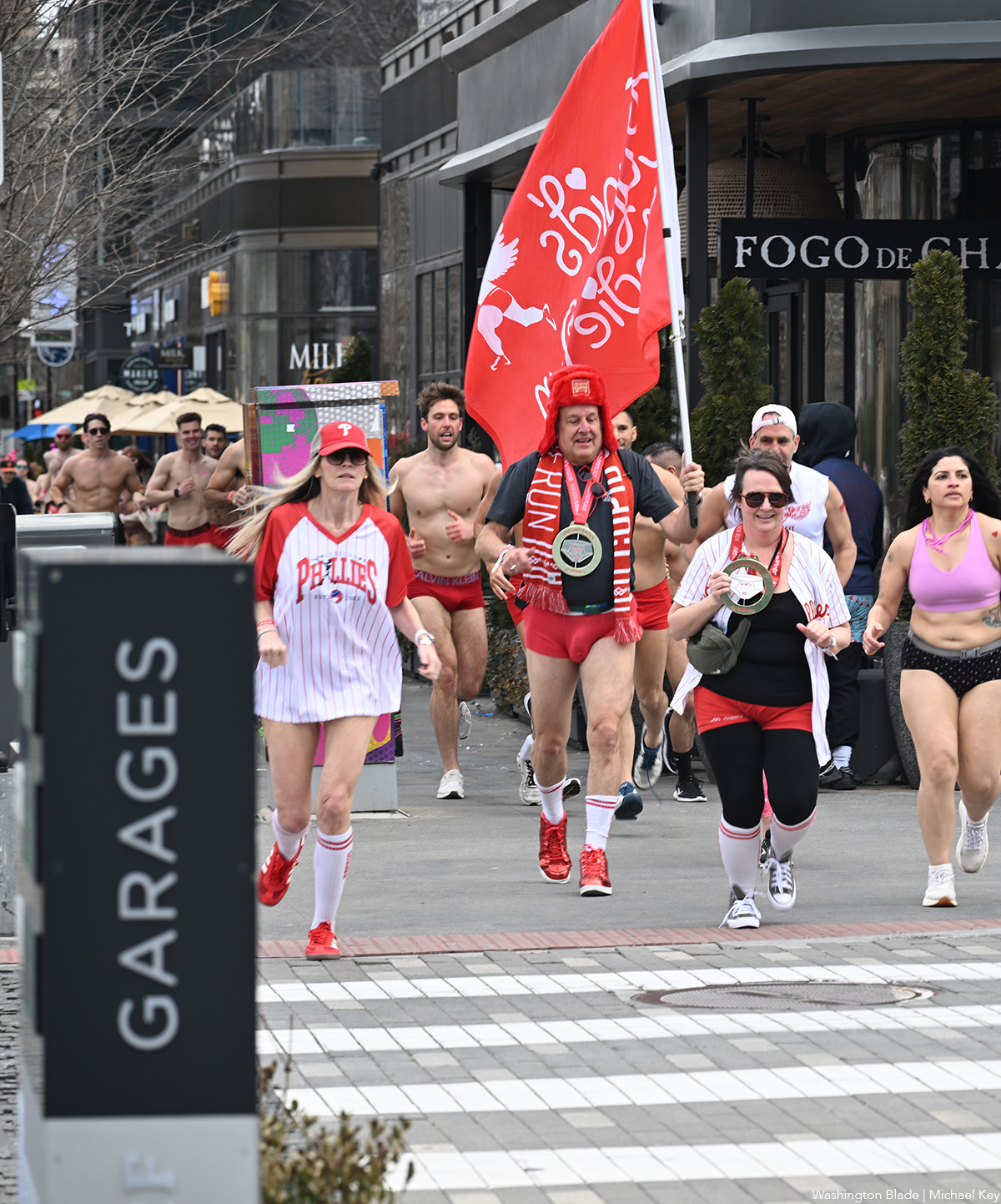
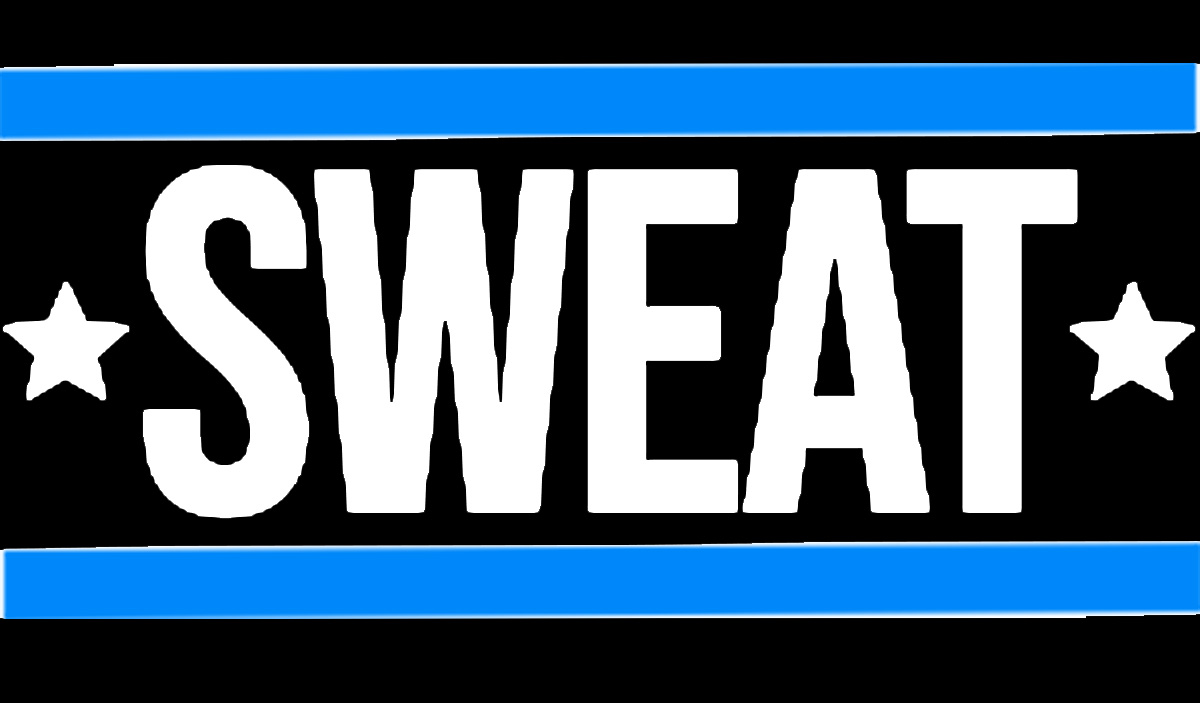
Sweat DC is officially expanding to Shaw, opening a new location at 1818 7th St., N.W., on Saturday, March 28 — and they’re kicking things off with a high-energy, community-first launch event.
To celebrate, Sweat DC is hosting Sweat Fest, a free community workout and social on Saturday, March 14, at 10 a.m. at the historic Howard Theatre. The event features a group fitness class, live DJ, local food and wellness partners, and a mission-driven partnership with the Open Goal Project, which works to expand access to youth soccer for players from marginalized communities.
For more details, visit Sweat DC’s website and reserve a spot on Eventbrite.
-

 National5 days ago
National5 days agoTrump falsely links trans people to terrorism
-

 Virginia5 days ago
Virginia5 days agoFellow lawmakers praise Adam Ebbin after Va. Senate farewell address
-

 National5 days ago
National5 days agoLGBTQ activists mourn the Rev. Jesse Jackson
-

 Massachusetts4 days ago
Massachusetts4 days agoEXCLUSIVE: Markey says transgender rights fight is ‘next frontier’



